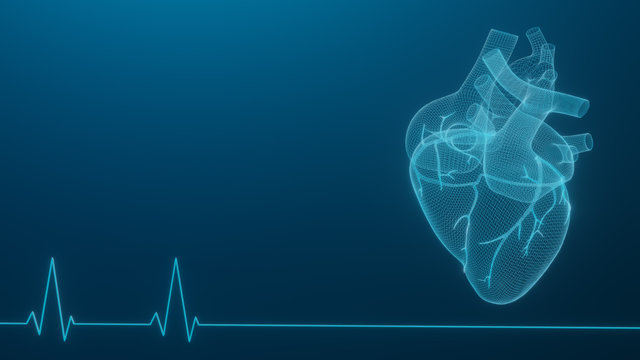The Role of Cardiology in Preventative Health And Wellness and Wellness Services
Cardiology is increasingly recognized for its pivotal role in preventative wellness and health solutions. By highlighting positive techniques, cardiologists aim to decrease the incidence of cardio conditions. This approach includes threat analyses, way of life changes, and regular testings. With these efforts, individuals are motivated to take control of their heart health. However, the assimilation of technology and collaboration with various other doctor raises important inquiries regarding the future of preventative care. What might this advancement involve?

Understanding Preventative Cardiology
Recognizing preventative cardiology involves acknowledging its vital function in reducing heart disease danger through proactive measures. This branch of medicine emphasizes the importance of lifestyle adjustments, consisting of exercise, tension, and diet management, to stop heart-related concerns before they develop. It promotes for regular wellness testings and education to encourage individuals in making informed wellness choices.Preventative cardiology likewise encompasses the identification of danger variables such as high blood pressure, diabetes mellitus, and high cholesterol, prompting people to embrace healthier behaviors - Dr Garcia. By concentrating on prevention as opposed to response, this approach not only improves private health end results however also reduces the total problem on health care systems. On top of that, it promotes partnership amongst medical care patients, neighborhoods, and service providers, promoting a holistic strategy to heart wellness. Eventually, recognizing preventative cardiology influences a change in the direction of a positive state of mind, prioritizing lasting health and health
Threat Analysis and Management
Risk evaluation is crucial in recognizing cardiovascular dangers that can cause severe wellness concerns. Effective management of these risks typically includes applying way of living alteration strategies, such as improved diet plan and boosted exercise. By recognizing and dealing with these aspects, people can substantially lower their chance of creating cardiovascular diseases.
Recognizing Cardiovascular Threats
Although many variables add to cardio health and wellness, determining cardiovascular risks is important for effective prevention and monitoring. Cardiovascular risk analysis involves assessing various components, including family background, sex, way of life, and age practices such as cigarette smoking and physical lack of exercise. Furthermore, health conditions like high blood pressure, diabetic issues, and high cholesterol significantly affect a person's danger account. Health care specialists use tools such as threat calculators and biomarker tests to evaluate these risks and stratify patients as necessary. Early identification allows targeted interventions, guiding individuals towards suitable monitoring methods. By recognizing these dangers, cardiologists can team up with clients to develop customized plans that stress tracking and proactive treatment, eventually decreasing the possibility of unfavorable cardio occasions.
Lifestyle Alteration Methods
Efficient lifestyle alteration methods play an important duty in managing cardiovascular health and wellness and mitigating affiliated threats. These strategies include dietary changes, boosted exercise, and smoking cessation. A heart-healthy diet abundant in fruits, vegetables, whole grains, and lean healthy proteins can significantly decrease cholesterol levels and high blood pressure. Routine exercise, such as cardiovascular workouts, reinforces the heart and improves circulation. In addition, quitting smoking reduces the danger of heart illness and improves overall wellness. Medical care experts usually use threat analysis tools to tailor these modifications to private demands successfully. By incorporating way of life become regular treatment, cardiologists can empower patients to take charge of their heart health, ultimately resulting in improved outcomes and lowered medical care prices.
Lifestyle Alterations for Heart Wellness
To keep perfect heart health, people have to embrace a selection of way of living alterations that substantially minimize the likelihood of cardiovascular diseases. A well balanced diet abundant in fruits, veggies, whole grains, and lean proteins is crucial. Lowering hydrogenated fats, trans fats, and salt intake can substantially decrease cholesterol levels and high blood pressure. Normal physical task, such as brisk walking or cycling for at the very least 150 minutes weekly, also plays a substantial duty in enhancing and reinforcing the heart circulation.Additionally, handling tension via techniques like mindfulness and reflection can have a positive influence on heart health and wellness. Staying clear of tobacco products and restricting alcohol usage further add to a healthier cardio system. Maintaining a healthy and balanced weight is crucial, as excessive weight is a significant threat aspect for cardiovascular disease. By incorporating these way of life modifications, individuals can foster not only their heart health and wellness yet likewise their general well-being, leading to a more vivid and energetic life.
The Importance of Routine Testings
Along with lifestyle alterations, regular screenings play an essential role in maintaining heart health and preventing cardiovascular illness. These evaluations are significant for determining danger aspects such as high blood pressure, high cholesterol, and diabetes, which can cause severe issues if left uncontrolled. Cardiologists advise regular assessments to keep track of heart function and spot irregularities early, allowing for prompt intervention.Screenings, which might consist of blood echocardiograms, electrocardiograms, and examinations, provide important data for customized treatment strategies. This proactive approach empowers people to make educated decisions regarding their health and wellness, boosting general health. Additionally, normal examinations promote a more powerful doctor-patient connection, motivating open dialogue concerning heart health and wellness issues.
Integrating Technology in Preventive Care
Welcoming modern technology has actually reinvented preventative care in cardiology, providing innovative devices that boost person monitoring and involvement. Wearable gadgets, such as smartwatches and fitness trackers, allow individuals to check their heart rate, task degrees, and general health metrics in real-time. These tools not only give prompt responses however additionally assist in information showing doctor, permitting prompt treatments when necessary.Additionally, telemedicine has actually emerged as a noticeable function in cardiology, allowing remote consultations and follow-ups. This accessibility guarantees that people can obtain care without the obstacles of travel and time constraints. Mobile wellness applications further support preventative procedures by offering personalized understandings and reminders for here are the findings medicine adherence, way of living modifications, and arranged screenings.
Patient Education and Empowerment
Empowerment via education is important in the domain of preventative cardiology, as informed patients are most likely to take part in aggressive wellness habits. By recognizing their cardio health and wellness, patients can make informed decisions pertaining to lifestyle adjustments and adherence to therapy strategies. Educational campaigns, including workshops, educational handouts, and on the internet sources, offer to improve person expertise concerning risk variables such as hypertension, cholesterol levels, and the significance of routine exercise.Moreover, encouraging clients promotes a collaborative method to health administration. When individuals know their problems and the ramifications of their options, they are most likely to join conversations with health care carriers, leading to customized treatment methods. This partnership not only advertises liability yet likewise enhances motivation for keeping a heart-healthy way of life (Dr Garcia). Eventually, patient education is a cornerstone of preventative cardiology, equipping individuals with the tools essential to take charge of their cardio wellness and wellness
Collaborating With Various Other Healthcare Professionals
Reliable client education and learning lays the foundation for collaborative initiatives amongst healthcare professionals in the area of preventative cardiology. Cardiologists, medical care doctors, nutritional experts, and psychological wellness experts should function in synergy to enhance individual results. By sharing strategies and understandings, these specialists can create comprehensive treatment plans that address both emotional and physical aspects of heart health.Regular interdisciplinary conferences foster communication, guaranteeing site here that all staff member are notified concerning individual development and obstacles. This collaboration assists in timely interventions and modifications to therapy strategies, enhancing the effectiveness of preventative measures.Furthermore, incorporating modern technology, such as shared electronic wellness records, boosts information ease of access and simplifies sychronisation initiatives. This holistic technique not just enhances client adherence to way of living changes but likewise empowers individuals to take fee of their cardio wellness. Inevitably, partnership amongst medical care specialists is necessary in promoting a positive strategy to heart problem prevention.
Frequently Asked Concerns
What Is the Distinction In Between Cardiology and General Healthcare?
Cardiology specializes in identifying and dealing with heart-related problems, while general health and wellness treatment encompasses a broader range of medical services dealing with numerous health and wellness concerns - Cardiology Jupiter. Each plays a vital role in preserving general wellness and wellness
How Commonly Should I See a Cardiologist for Precautionary Treatment?
The frequency of cardiologist check outs for preventative care varies based upon private threat variables. Usually, annual consultations are advised for those with status quo, while others might need much less regular exams based upon general heart health and wellness.
Can Tension Influence My Heart Wellness Dramatically?
Tension can considerably influence heart health and wellness by adding to high blood pressure, swelling, and unhealthy lifestyle options. People experiencing chronic stress and anxiety might go to increased danger for cardio issues, requiring effective anxiety management methods for far better heart health.
Exist Specific Heart Disease I Should Know?
People must understand conditions like high blood pressure, coronary artery disease, heart failure, arrhythmias, and valvular heart condition. Recognizing these problems early can bring about better monitoring and improved general heart wellness outcomes.

What Are the Costs Connected With Preventative Cardiology Providers?
The expenses connected with preventative cardiology services can differ considerably. Aspects such as place, sort of solution, and insurance policy coverage influence overall expenditures, making it crucial for people to seek thorough details certain to their circumstances. Via these initiatives, people are urged to take control of their heart health and wellness. It supports for routine wellness testings and education to empower people in making informed health and wellness choices.Preventative cardiology additionally incorporates the identification of threat elements such as high blood pressure, diabetes, and high cholesterol, prompting individuals to take on healthier routines. In addition, it promotes partnership amongst healthcare communities, companies, and patients, cultivating a holistic method to heart wellness. Regular physical task, such as vigorous visit their website strolling or cycling for at least 150 minutes per week, additionally plays a considerable duty in strengthening the heart and enhancing circulation.Additionally, managing stress and anxiety through techniques like mindfulness and meditation can have a favorable impact on heart health. Cardiology specializes in identifying and treating heart-related conditions, while general wellness care encompasses a broader range of medical services resolving numerous wellness concerns.